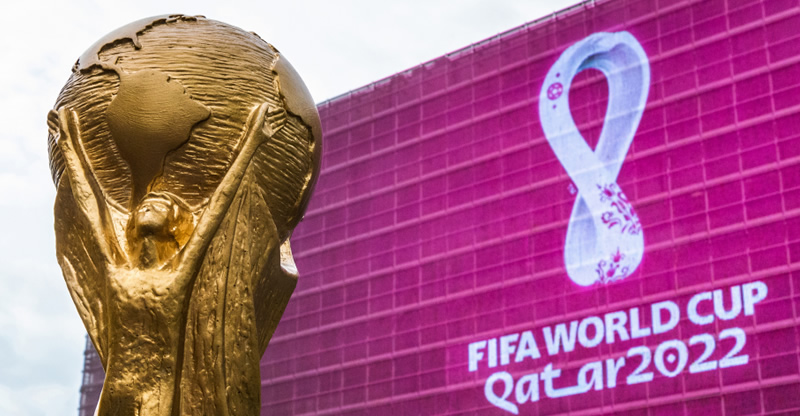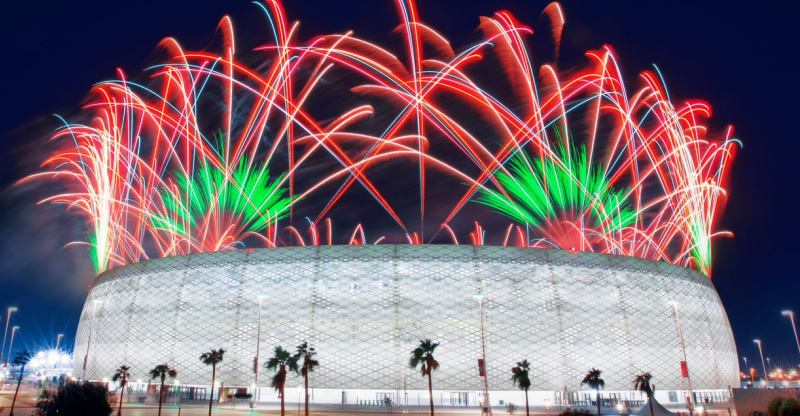
All eyes have been on Qatar in recent months, as curiosity and concern ramped up about just how this small country would handle the influx of fans and press from around the world for 2022’s World Cup competition.
By now, much criticism has been directed towards Qatar for many elements of its World Cup story and more – from its winning of the hosting bid, to the building of its venues, and its stance on LGBT issues.
Much insightful news and comment has been written and continues to be written about these issues, and one thing is for certain: Qatar has had much negativity to combat with their curation and delivery of this competition.
Even without the bad press, the potential culture clashes were going to be a huge challenge. So the team curating the event had a very difficult and high-stakes task.
Among Qatar’s motives for launching their bid were to highlight the country’s offer to the world, with sport as the ultimate platform. What else but a major sporting event could bring the country this much attention around the world?

And what have they done so far with this attention to attempt to turn a PR nightmare around?
Fatma Samoura, FIFA’s secretary general, has said: “No matter your race, your religion, your social and sexual orientation, you are most welcome, and Qataris are ready to receive you with the best hospitality that you can imagine.”
And it’s clear that, through every element of this event, the team delivering the Qatar competition were promoting this sentiment, while treading a fine line between creating a welcoming atmosphere for visitors, showcasing the country’s culture and heritage, and even directly answering some of the criticism it has faced.
The team tasked with this project were also representing the first ever Arab nation to host the World Cup – and the first ever single city to host it – just to add further weight to their considerable load. The opening ceremony and cultural programme were overtly stating that inclusion was at the core of this event.
In one of the most shared moments of the opening ceremony, Hollywood A-lister Morgan Freeman and World Cup ambassador Ghanim Al Muftah converse about the importance of inclusion and mutual respect, hammering home that football is for everyone and that Qatar welcomed everyone.
In another world first, Ghanim Al Muftah recited a verse from the Qur’an, one carefully chosen to reflect a message of diversity: ‘O humanity! Indeed, We created you from a male and a female, and made you into peoples and tribes so that you may know one another. Surely the most noble of you in the sight of Allah is the most righteous among you. Allah is truly All-Knowing, All-Aware.’
A varied official soundtrack for 2022’s event included international superstars, but among the songs was ‘Light The Sky’ , which featured four of the famous Arab female singers. Emirati singer Balqees, Moroccan-Canadian Nora Fatehi, Rahma Riad from Iraq, and Manal from Morocco.
The song was a nod to the female referees taking part in the event this year, and had a video by Qatari filmmaker Amal Al Moftah.
Qatar’s distinct identity shone through many more elements of the competition. For example, the exterior of the Al Bayt Stadium was designed to mimic a traditional Bedouin tent, and the World Cup mascot La’eeb was a cheerful and distinctly Arabic figure.
The opening ceremony mixed international talent with an al-Ardha sword dance performance, and traditional dress and music. Meanwhile the programme of music festivals fans could attend throughout the competition had line-ups that would draw crowds anywhere in the world.
And of course at the end of the competition there was the now famous photograph of Lionel Messi dressed in a ceremonial bisht, raising the World Cup in glory as the captain of the winning team, Argentina.
Giving him this garment to wear was completely befitting the occasion and his status as one of the best players ever to grace the field.
At Alea Global Group we were watching with interest to see whether the team responsible for Qatar’s cultural offer at the World Cup could present an event that had beauty, value and resonance for Qataris and also for the visiting nations.
In this respect we congratulate the team for their success, and for making the entire Gulf region proud of their momentous achievement on the global stage.
